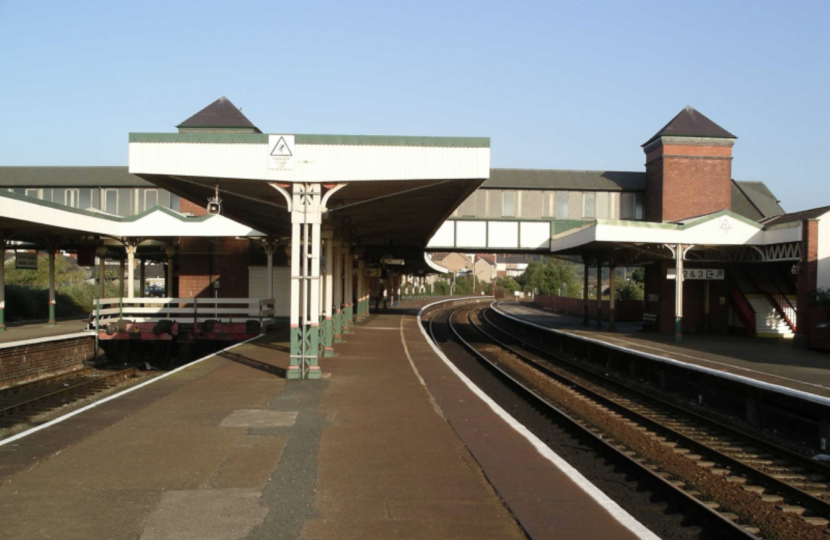
I am deeply concerned about the damage and disruption that the week of planned RMT workers rail strikes will cause.
These strikes are inconsiderate – those striking are already some of the best paid in the public sector. But those affected are already feeling the greatest pressure from the rising cost of living. Also affected are young people in the middle of their exams, tourists visiting on holiday and the businesses trying to serve them.
These strikes are cynical – they are politically motivated, fuelled by outdated grievances, coming at a time of record investment in rail and after unprecedented support during the pandemic. Rail stands at the threshold to a new golden era – but the unions want to drag it backwards.
These strikes are short sighted – at such a critical time, recovering from a pandemic, this risks a loss of public confidence in rail services which will only hurt rail workers themselves.
These strikes are fuelled by out-of-date narratives, tired grievances resurrected for narrow political gain.
When the pandemic struck, the UK entered the worst recession in three centuries and passenger numbers collapsed. The Government recognised the value of the railways and responded with a package of support to railways and workers worth £16 billion pounds to ensure that they could continue to operate.
The UK government funded by British people stepped in and not one railway worker was furloughed or lost their job.
These strikes hit those hardest who are already feeling it most.
Our nurses, carers, teachers, cleaners, shop workers and factory workers – so many of whom depend on public transport – are also the ones who are feeling cost of living price rises the most.
Their inability to get to work will cause deep distress and risks hardship.
Government support during the pandemic amounted to £600 pounds of taxpayers’ money raised from every UK household. Hard working taxpayers stood by rail workers during the pandemic, they now need rail workers to stand by them.
The railway strikes are the wrong thing at the wrong time, a relic of a bygone age – a stone age tool in a modern age.
The fact is that although this a dispute about wages, it is being brought by one of the better paid parts of the public sector. The average salary of those going on strike is £43,747.
These strikes will only deter visitors and damage our economy.
Here in Aberconwy and north Wales, tourism is invaluable to our local economy and rail connectivity is vital to bringing visitors. International visitors landing in Manchester and Birmingham airports, and UK visitors coming from key areas like the northwest and west midlands, all use rail to connect to north Wales.
The Welsh Affairs Committee in Parliament is currently undertaking an inquiry into ‘Wales as a global visitor destination’. Only last week, the CEOs of some of the most successful and high-profile visitor attractions in Wales highlighted the damage the strikes will inflict:
“There will be problems, and it won’t look good on us”
- Paul Lewen, General Manager, Ffestiniog and Welsh Highland Railways
“It’s obviously not a good situation to be in.”
- Sean Taylor, CEO Zipworld
“People will not come back if they have a bad experience. They’ll think twice and there are plenty of other places they can go to see and do things.”
- Stephen Davies, CEO Penderyn Distillery
These strikes will deter tour companies who next year will choose more stable services. And tourists – who will simply choose more reliable destinations.
